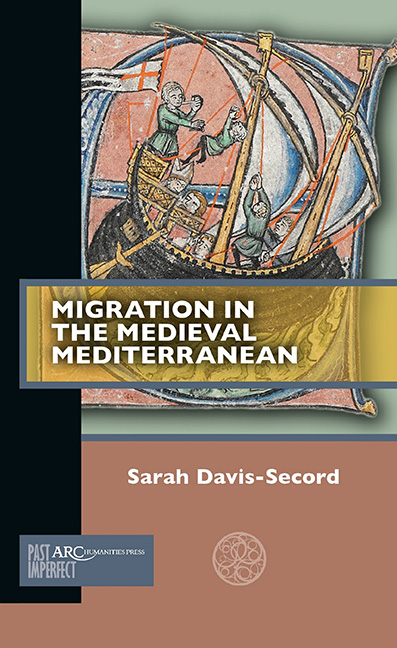Book contents
- Frontmatter
- Contents
- Introduction
- Chapter 1 Refugees from the Islamic Conquests
- Chapter 2 Hadrian and Theodore
- Chapter 3 St. Elias the Younger
- Chapter 4 Constantine the African
- Chapter 5 Jewish Refugees from the Norman Invasion
- Chapter 6 Merchants
- Chapter 7 Imam al-Mazari and Other Muslim Scholars
- Chapter 8 Unnamed Sicilian Girl
- Chapter 9 George of Antioch and Other Immigrants to Sicily
- Chapter 10 Moses Maimonides
- Chapter 11 Religious Converts
- Conclusion
- Further Reading
Chapter 8 - Unnamed Sicilian Girl
Published online by Cambridge University Press: 13 January 2022
- Frontmatter
- Contents
- Introduction
- Chapter 1 Refugees from the Islamic Conquests
- Chapter 2 Hadrian and Theodore
- Chapter 3 St. Elias the Younger
- Chapter 4 Constantine the African
- Chapter 5 Jewish Refugees from the Norman Invasion
- Chapter 6 Merchants
- Chapter 7 Imam al-Mazari and Other Muslim Scholars
- Chapter 8 Unnamed Sicilian Girl
- Chapter 9 George of Antioch and Other Immigrants to Sicily
- Chapter 10 Moses Maimonides
- Chapter 11 Religious Converts
- Conclusion
- Further Reading
Summary
Women's migration experiences are particularly hard to access, due both to the preoccupation of most medieval texts with the lives of named men and to the specific dangers that migration presented to women travelling alone. While we certainly know that women undertook long journeys on their own volition for a variety of reasons, many Christian women who travelled were wealthy pilgrims with an entourage. We also know that Jewish and Muslim women travelled—for pilgrimage, marriage, to visit relatives, and at holiday times—although less frequently than men. The conditions of migration were far more precarious even than those of pilgrimage or other long-distance journeys, however, which may mean that few women would have migrated independently of their family group.
We know, for instance, that the Jewish scholar Moses Maimonides (on whom more below) migrated together with his whole family—including father, mother, brother, and at least two sisters—even though the sources reveal very little about the women of the family and how they might have experienced migration differently than Moses and his brother or father. The difficulties that this family encountered while seeking a settled life in a new land also highlight the vulnerability of migrants, even ones as well positioned as Maimonides’ family. Women migrating alone or with young children would have faced even more dangerous challenges. Many women likely would not have chosen to migrate without the surety of a home at the end of their journey.
We can get a glimpse of these issues through the story of an unnamed Sicilian Muslim girl written down by the Muslim traveller Ibn Jubayr. Having spent several months in Christian Norman Sicily (in the winter of 1184–85) on his return home to Granada after pilgrimage to Mecca, Ibn Jubayr related important information about the conditions of life for Muslim minorities in Sicily under King William II. While he was initially impressed by the king's attitude of acceptance toward Muslim courtiers—guards, tailors, cooks, concubines, and others at the king's royal palace who spoke Arabic and practised Islam with, he claimed, the full knowledge of the king—by the end of his time on the island, Ibn Jubayr had come to believe that Norman Christian society was oppressive to the native Muslims.
- Type
- Chapter
- Information
- Migration in the Medieval Mediterranean , pp. 71 - 78Publisher: Amsterdam University PressPrint publication year: 2021



